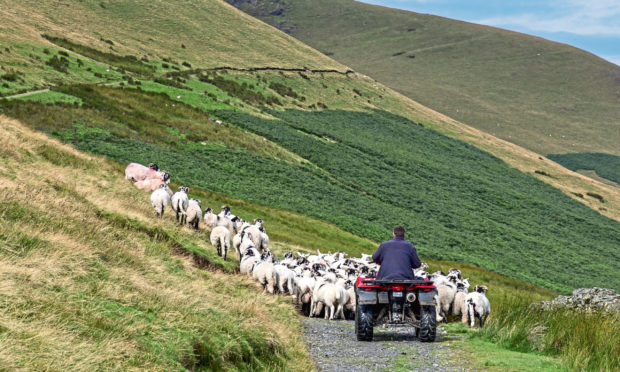Sheep farmers reliant on subsidies could profit from letting their land naturally return to woodland, a study suggests.
Most sheep farming in the UK is not profitable without subsidies, if farmers are paid for their labour, according to the research from Sheffield University.
But farmers could make money by allowing native trees to return to their land and selling “credits” for the amount of carbon dioxide the trees absorb as part of efforts to tackle climate change.
The study found farmers with at least 60 acres of land could turn a profit if they allowed it to naturally regenerate into woodland and were paid as little as £3 a tonne for the carbon the woods store.
The credits could be bought by businesses or individuals who want to offset their emissions, for example from flights.
If they were sold for £15 a tonne – the current market price for carbon credits – they could make forests of any size profitable, the study published in the journal Environmental Research Letters said.
If farmers had to plant trees, they would need a price of around £42 per tonne of carbon stored – although government grants can help cover the costs of new woodland creation, the study said.
National Sheep Association chief executive Phil Stocker said expecting farmers to give up keeping sheep and plant forests “ignores two basic facts”.
He said: “Sheep farming is more than just a business, it is part of our culture and heritage and farmers get huge pride and satisfaction from farming sheep.”
Secondly, land management had to be looked at on a multi-functional basis, he said, adding: “Sheep farmers are managing one of our most precious resources – grassland – while also producing a fantastic and nutritious food from it.”
He said grassland stored carbon and supported wildlife, and sheep farming was at the heart of rural communities that the public benefited from when they visit the countryside.
